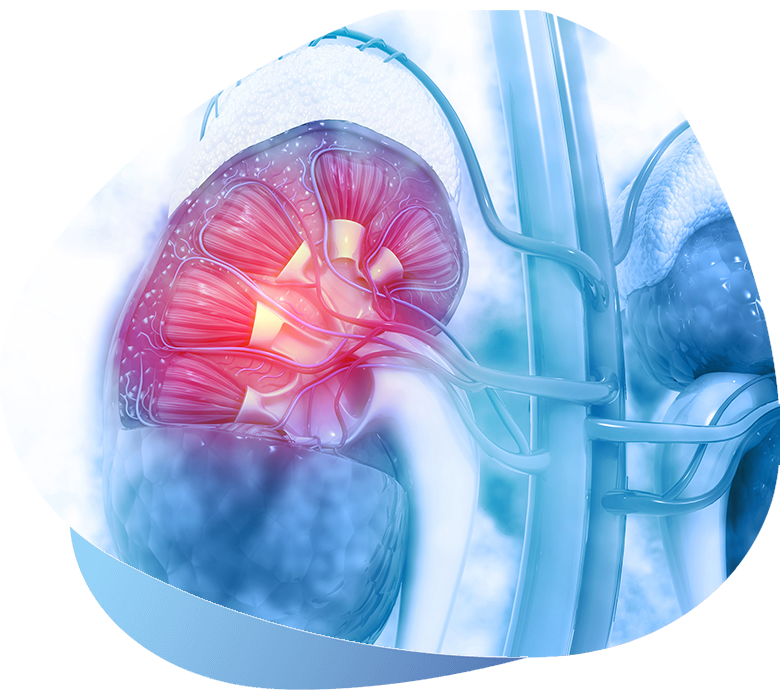Kidney & Ureter Stones
Expertly trained in all forms of stone diagnosis, treatment and management.

What are Kidney & Ureter Stones?
What are the different types of kidney stones?
Kidney stones come in many different types and colors. The four major types are:- Calcium stones – These are the most common type usually consisting of Calcium Oxalate, Calcium phosphate, or a combination.
- Uric Acid stones – Uric acid is a normal product that comes from chemical changes in the body. In certain situations the uric acid in the urine can crystalize forming a hard stone.
- Struvite stones – most commonly result from chronic urine infections
- Cystine stones- very rare type and typically begin in childhood.
What are the Symptoms of Kidney stones?
Kidney stones that are not obstructing urine flow may not have any symptoms. Abnormalities in a urine sample such as microscopic blood can sometimes be found. When the stone enters the ureter (ureter stone) it block the flow of urine from that particular kidney typically causes intense pain on the side of the stone, nausea, vomiting, urgency to urinate and frequent urination. Occasionally kidney stones can cause obvious blood in the urine.How are kidney stones diagnosed?
CT scans are the gold standard test for kidney stones with 99% accuracy. Plain Xrays may or may not diagnose stones depending on the size, location, and type of stone. MRIs are not very useful in the diagnosis of stones. Ultrasounds are sometimes helpful but have limitations.How are kidney stones treated?
Although complications may occur, they are relatively uncommon and not serious.Trial of passage
Particularly small stones <5mm may pass on their own, but not always. As stones increase in size the probability of passing without treatment goes down. There are medications such as Tamsulosin (Flomax) that may slightly increase the chances of stone passage. Stones that result in unrelenting pain, nausea, or fevers are not candidates for trial of passage.
MedicationsOnce stones are formed they are just that… stones. They will not typically go away or dissolve with medication with very few exceptions. Medications are typically used to prevent future stones.
Surgery or ProceduresThis is necessary when a stone fails a trial of passage within a reasonable time frame (4-6weeks max), is too large to pass, is causing too severe of symptoms, or the patient simply wants the stone removed.
Shockwave LithotripsyThis is a noninvasive procedure in which sounds waves are directed at the stone to break it into very small pieces that will pass naturally. It is the safest form of kidney stone treatment and is typically done as an outpatient procedure under sedation.
Laser lithotripsyThis is a minimally invasive procedure in which very small telescopes (ureteroscope) enters through the natural urethra opening, and is guided to the stone location. A laser is used to break the stone into small pieces which can then be removed. This is also typically done as an outpatient under sedation.
Percutaneous nephrolithotomy (PCNL)Extremely large stones may not be feasibly treated with the above procedures, making a PCNL necessary. A telescope is guided directly into the back through a half-inch incision to break up and remove the stone(s). This treatment is done under anesthesia and the patient is kept overnight for observation. This is the best treatment choice for Large stones.
Other surgeryOpen, laparoscopic, or robotic surgery may be used in special circumstances, although very rare given the success rate and safety of the above procedures.
